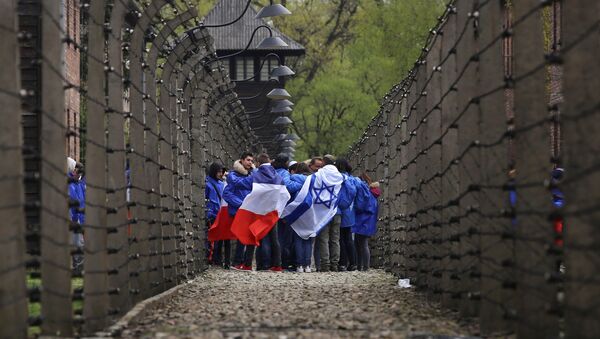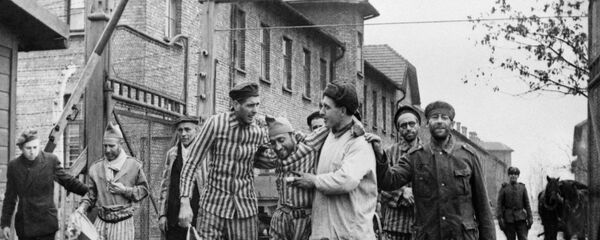Sputnik has discussed the amendments to Poland's controversial Holocaust Bill with Sharren Haskel, Member of the Israeli parliament for Likud party.
Sputnik: What reaction has this bill and this amendment provoked in Israel?
Sharren Haskel: When this bill was presented we were really offended by it. One of the biggest lessons that we have to learn from the Holocaust is that it can never happen again in history, and the way to make sure this never happens again is to speak about, teach it, to raise the awareness around it.
When you bring a bill that prevents an open discussion about the Holocaust it really prevents an option to really do this. It means that, obviously in the Second World War there were many victims, obviously, the Jews were one of the biggest victims, but many other countries had many victims and we can say that Poland was conquered and there was a lot of atrocities that happened to the Polish people.
READ MORE: Germany Should Pay Poland Damages for World War Two - Poland's Ruling Party
But you also cannot ignore the people, not just from Poland, but from many countries in Europe that participated and cooperated with the Nazi government as well. Obviously they were conquered, they were occupied and they didn't have any other choice, but there was a small minority that did have a choice and wished to participate and this is part of what's important to learn from history as well how to oppose these kinds of people.
When we are unable to speak and have an open discussion about it, if someone is threatening us while having this open discussion, that maybe we will be arrested or imprisoned because we put a word like this, that it's very offensive towards us. And it actually prevents one of the biggest things that I think is the biggest lesson we should learn from the Second World War; that the international community needs to join together and learn about it so that something like that will never happen again.
READ MORE: Netanyahu Welcomes Poland's Decision to 'Rescind' Parts of Holocaust Bill
Sputnik: In your view why was the Holocaust Bill passed in the first place? It's very confusing for people outside Poland in terms of the global audience and those who've got knowledge of the Holocaust, but what's your feeling about it?
Sharren Haskel: I think a lot of the time, those emotions that people want to show more a minor part of what had happened and to make sure and reinforce that they're not mentioned like that, they're sort of trying to correct history but something like that is impossible to do. We've seen other countries who have passed similar bills, we can look at Lithuania who started with those kinds of bills. I know there was a bill that was passed in Ukraine as well. But also the friendship and the close bond that we have with Poland really took us off guard and it is a big surprise for them to actually come up with legislation like that. The Second World War is a huge stain on European history, the murder of millions of people, six million Jews and many more from so many different countries, obviously, it is a black stain and more and more countries are trying to sort of take off as much as possible from this stain as well.
Sputnik: How does Israel view Poland's role during the Second World War and the Holocaust? There must be some very significant feelings regarding that because of the sheer masses of people that lost their lives, this is why people outside of Poland, myself included, have been scratching our heads over this decision?
We know and we understand history. We know that Poland was conquered by the Nazis. We know it was easy for the Germans to put those death camps on Polish lands, but you know, even with that, when my grandfather, just a few days before they were liberated, they went on a death march and in this death march most people died.
READ MORE: Holocaust, Occupied Territories...Scones? Prince William Touches Down in Israel
My grandfather on one of the days managed with one friend to escape and hide, but most of the people that went with them on the march were killed by local farmers, from local Polish towns. So as much as we know that this was a very small minority that participated and took part in some of the crimes that the Nazis did, you know this is a part history that has to be told as well.
This is part of history that my family and many more families here in Israel, have learned all the stories of them, we studied it in school and it is important for us to have a discussion, many of us are coming to Poland to learn about what the German Nazis did there. So it that essence it has a huge meaning when it comes from Poland or when the Polish government is trying to pass a bill like that.
The views and opinions expressed by the speaker do not necessarily reflect those of Sputnik.




